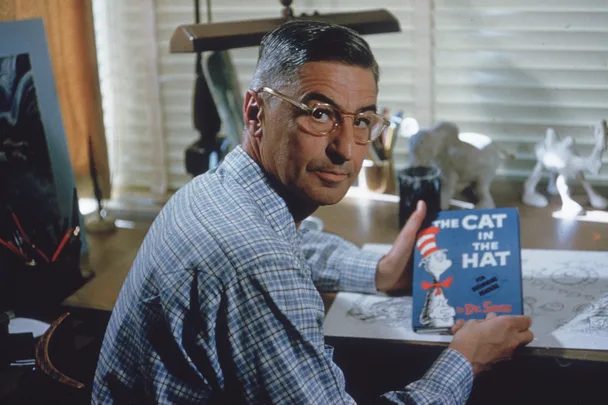Six of Dr. Seuss’ books will cease publication this year, Dr. Seuss Enterprises confirmed on March 2 regarding its “mission of supporting all children and families with messages of hope, inspiration, inclusion, and friendship.” According to the announcement, the author’s titles will no longer be published due to insensitive and racist character portrayals—though racism isn’t explicitly mentioned in the statement.
“We are committed to action. To that end, Dr. Seuss Enterprises, working with a panel of experts, including educators, reviewed our catalog of titles and made the decision last year to cease publication and licensing of the following titles: And to Think That I Saw It on Mulberry Street, If I Ran the Zoo, McElligot’s Pool, On Beyond Zebra!, Scrambled Eggs Super!, and The Cat’s Quizzer. These books portray people in ways that are hurtful and wrong,” the announcement, which coincided with the late author’s birthday, read.
Books by Dr. Seuss—real name Theodor Seuss Geisel, born in 1904—have been translated into dozens of languages, as well as braille, and are sold in more than 100 countries. The author died in 1991, but his legacy continues with Forbes listing the late author as the second-highest-paid dead celebrity of 2020, in part, thanks to multimillion-dollar film and television adaptations of his books, with Glee’s Matthew Morrison portraying The Grinch in the live-action musical remake of the iconic book.

While many adore Dr. Seuss’ work for the positive values instilled in the children’s novels, including environmentalism and tolerance, there has been increasing criticism in recent years for its treatment of characters of colour—including those who are Black and Asian.
In 2019, a study by academics from the University of California, San Diego and the founder of the Conscious Kid Library, found that just 2 per cent of the author’s human characters are non-white, and the vast majority are portrayed in a way that perpetuates racist stereotypes. The study also found a marked lack of women and girls in the books.
“Minimising, erasing or not acknowledging Seuss’ racial transgressions across his entire publishing career deny the very real historical impact they had on people of color and the way that they continue to influence culture, education, and children’s views of people of color,” the authors of the study wrote.










